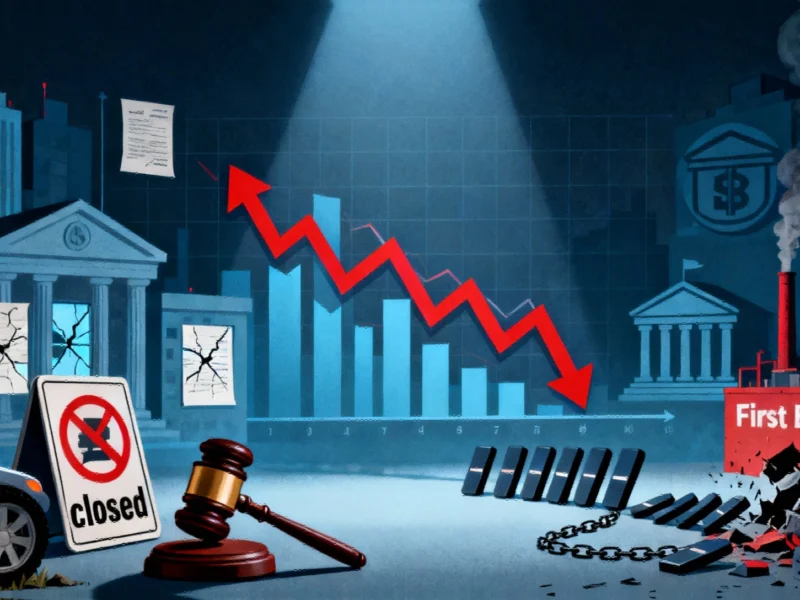Europe’s Regulatory Environment Hampering Growth, Apollo Chief Warns
Marc Rowan, chief executive of Apollo Global Management, has issued a stark warning about Europe‘s economic prospects, stating the continent is “at war with itself” as excessive financial regulation stifles growth and undermines competitiveness with the United States, according to reports from the Financial Times private capital summit.
The billionaire financier, who co-founded the New York-based private capital group, indicated Europe has made minimal progress in implementing reforms needed to secure investment and revive its struggling economy. “I see Europe a little bit at war with itself with respect to financial regulation,” Rowan stated during his appearance at the summit.
Contradictory Signals From European Leadership
According to the analysis presented by Rowan, European politicians are sending mixed messages to investors. “On the political side, you have all the signals of embracing risk-taking, equitisation and private markets. [But] on the regulatory side, not so much,” he observed during the interview.
The Apollo CEO further emphasized the severity of Europe’s challenges by comparing them to the United States. “There are lots of problems to look at in the US. Every problem that we have in the US is worse here [in Europe], every single problem,” Rowan stated, though he did not specify which particular issues he was referencing.
Private Capital Sees Opportunity Despite Challenges
Despite the regulatory hurdles, private capital firms have identified significant opportunities to supply funding for European infrastructure projects aimed at boosting productivity. Apollo and its rivals Blackstone, KKR and Brookfield are all reportedly planning substantial increases in regional investment over the coming decade.
Analysts suggest this investment surge comes at a critical time, as Europe faces what former European Central Bank head Mario Draghi previously termed an “existential challenge” if the continent fails to improve productivity. Draghi’s landmark report on competitiveness included nearly 400 recommendations addressing these concerns.
Major Projects Already Underway
Apollo has already committed billions to significant European ventures, including financing for Intel’s semiconductor fabrication plant in Ireland and EDF’s construction of the Hinkley Point C nuclear power station in the UK. The firm has also backed a substantial energy grid venture with German power utility RWE.
Rowan projected that despite current challenges, “on a relative basis, Europe will grow faster than the US with respect to private capital because it needs it more.” This assessment comes amid broader industry developments in technology and infrastructure investment.
European Ambition to Avoid “Technology Colony” Status
According to the report, European businesses and governments are increasingly turning to private capital groups to enhance the competitiveness of their technology sectors. “They do not want to be, I saw the word this morning, a technology colony,” Rowan commented. “They want to be leaders — they want to actually have their own infrastructure, their own defence base, their own everything. To do that, you’re going to need massive amounts of capital.”
This push for technological independence aligns with recent technology trends and related innovations in global markets.
Broader Fiscal Concerns Across Western Democracies
While offering harsh criticism of Europe’s regulatory approach, Rowan also addressed fiscal challenges in the United States, noting that President Donald Trump had “absolutely not” made progress in improving public finances. The Apollo CEO, who was previously considered for Treasury secretary, identified this as a primary economic risk for the world’s largest economy.
“In the US we have, we’ve been running a large deficit, we’ve been piling up debt, but fundamentally our budget is a math problem,” Rowan stated. He expressed skepticism about political willingness to address fundamental fiscal issues, noting “the willingness of politicians in the US, and I would say [in the UK], and in Europe, and in almost every western democracy, to do something fundamental outside of crisis is nil.”
These fiscal challenges exist alongside other pressing global issues, including market trends in sustainability and climate-related investments that are transforming economic planning worldwide.
This article aggregates information from publicly available sources. All trademarks and copyrights belong to their respective owners.
Note: Featured image is for illustrative purposes only and does not represent any specific product, service, or entity mentioned in this article.



